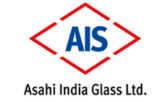call now 9997155111
Duration 3 Years and 2 Years for Lateral Entry
Eligibility Criteria High School with minimum 50% marks in Science & Mathematics from a recognized board or equivalent. For Lateral Entry 10+2 with minimum 45% Marks (40% in case of reserved category) in Physics, Mathematics along with Chemistry/Biotechnology/Computer Science as one of the subjects.

Why take this Course?
Why choose Us?
Progressions & Career
Progression:
Here are the opportunities after pursuing Diploma in Mechanical Engineering:
Career:
Below are the career opportunities for Diploma in Mechanical Engineering graduates:
The Shivalik Advantage
Top Recruiters






FAQ's
Certain key skills that help students of Mechanical Engineering get rewarding jobs with handsome salaries are:
A full-time B Tech program can be taken up after completing Diploma in Mechanical Engineering, or an equivalent AMIE part time. For those who wish to study beyond, one can pursue an M Tech program as well. Some of the latest advanced courses in the realm of Masters in Mechanical Engineering are:
1. Piping Design and Engineering Course: This course makes students industry-ready and it is being recommended by experts after one finishes graduation in Mechanical Engineering
2. Master of Engineering in Tool Design: Being a highly lucrative course for Mechanical Engineering graduates, it can be a 2-year full-time course or short-term diploma and certificate courses.
3. Robotics Course: It is the scientific study of the design and manufacturing of robots.
4. Mechatronics Course: This study of science is a combination of 5 disciplines: mechanics, electronics, informatics, automation, and robotics.
5. Nanotechnology: It is the study of engineering, technology, and applied science.
6. Masters in Business Administration (MBA): It is beneficial in obtaining jobs in managerial positions. It provides a broad choice of career options.
Graduates with a diploma in mechanical engineering degree can pursue higher studies through B. Tech or AMIE. They can get rewarding jobs in Government as well as private sectors. Moreover, they can kick off their career with an apprenticeship which serves as an excellent way to start in the field they want to work in. After completing this course, they can go for short-term professional courses. The duration of such courses can be as low as 6 months to 1 year. After obtaining the certification of these courses, they become eligible to get valuable jobs with an assured career progression.
In India, the future scope of mechanical engineering is well in demand as it has applications across sectors and industries. Almost any product requires machines and machines are designed, manufactured and operated by people with mechanical engineering skills. As per one of the reports published by the global consultancy firm Deloitte, India is anticipated to continue to grow manifold in manufacturing in the coming years. According to its report on the Global Manufacturing Competitiveness Index, the country will move up 6 positions to be at the 5th position given the call of the PM for ‘Atma Nirbharta’.Therefore, in India, there would be ample new opportunities for mechanical engineers. The compensation packages of mechanical engineers rely mainly on their skills.
Curriculum
| Theory | |
| 991002 | Applied Mathematics I |
| 991003 | Applied Physics I |
| 991004 | Applied Chemistry I |
| 991005 | Computer fundamentals |
| 991006 | Engineering Drawing I |
| Practical | |
| 991003 | Applied Physics I |
| 991004 | Applied Chemistry I |
| 991005 | Computer fundamentals |
| 991007 | General Workshop Practice I |
| Theory | |
| 992001 | English and Communication Skills-II |
| 992002 | Applied Mathematics II |
| 992003 | Applied Physics II |
| 992004 | Applied Chemistry II |
| 992005 | Environmental Science and Energy Management |
| 992006 | Engineering Drawing II |
| Practical | |
| 992001 | English and Communication Skills-II |
| 992003 | Applied Physics II |
| 992004 | Applied Chemistry II |
| 992007 | General Workshop Practice II |
| Theory | |
| 993001 | Basic Electrical and Electronics Technology |
| 993002 | Material Science & Metallurgy |
| 993003 | Machine Drawing |
| 993004 | Thermodynamics |
| 993005 | Workshop Technology |
| 993006 | Applied Mechanics |
| Practical | |
| 993001 | Basic Electrical and Electronics Technology |
| 993002 | Material Science & Metallurgy |
| 993003 | Machine Drawing |
| 993004 | Thermodynamics |
| 993005 | Workshop Technology |
| 993006 | Applied Mechanics |
| Theory | |
| 4035 | Strength of Material |
| 4036 | Applied Thermal Engineering |
| 4037 | Basic Of Civil Engineering |
| 4038 | Production Technology |
| 4039 | Hydraulics & Hydraulic Machine |
| 4040 | Metrology |
| Practical | |
| 4035 | Strength of Material |
| 4036 | Applied Thermal Engineering |
| 4037 | Basic Of Civil Engineering |
| 4038 | Production Technology |
| 4039 | Hydraulics & Hydraulic Machine |
| 4040 | Metrology |
| Theory | |
| 5043 | Dynamic of Machine |
| 5044 | Machine Element Design |
| 5045 | Operation Management |
| 5046 | CNC Machine & Automation |
| 5047 | Maintenance Engineering |
| Practical | |
| 5042 | Computer Application in Mechanical Drafting Design |
| 5046 | CNC Machine & Automation |
| 5047 | Maintenance Engineering |
| 5048 | Industrial Engineering |
| Theory | |
| 6037 | Advance Machine Design |
| 6038 | Automobile Engineering |
| 6039 | Power Plant Engineering |
| 6040 | Mechatronics |
| 7001 | Entrepreneurship Development and Management |
| Practical | |
| 6038 | Automobile Engineering |
| 6039 | Power Plant Engineering |
| 6040 | Mechatronics |
| 6041 | Project Work |
Program Specific Outcomes and Program Educational Objectives
Engineering knowledge: Apply the knowledge of mathematics, science, engineering fundamentals, and anengineering specialization to the solution of complex engineering problems
Problem analysis: Identify, formulate, review research literature, and analyze complex engineering problems reaching substantiated conclusions using first principles of mathematics, natural sciences, and engineering sciences
Design/development of solutions: Design solutions for complex engineering problems and design system components or processes that meet the specified needs with appropriate consideration for the public health and safety, and the cultural, societal, and environmental considerations.
Conduct investigations of complex problems: Use research-based knowledge and research methods including design of experiments, analysis and interpretation of data, and synthesis of the information to provide valid conclusions
Modern tool usage: Create, select, and apply appropriate techniques, resources, and modern engineering and IT tools including prediction and modeling to complex engineering activities with an understanding of the limitations
The engineer and society: Apply reasoning informed by the contextual knowledge to assess societal, health, safety, legal and cultural issues and the consequent responsibilities relevant to the professional engineering practice
Environment and sustainability: Understand the impact of the professional engineering solutions insocietal and environmental contexts, and demonstrate the knowledge of, and need for sustainable development
Ethics: Apply ethical principles and commit to professional ethics and responsibilities and norms of the engineering practice
Individual and team work: Function effectively as an individual, and as a member or leader in diverse teams, and in multidisciplinary settings
Communication: Communicate effectively on complex engineering activities with the engineering community and with society at large, such as, being able to comprehend and write effective reports and design documentation, make effective presentations, and give and receive clear instructions.
Project management and finance: Demonstrate knowledge and understanding of the engineering and management principles and apply these to one‘s own work, as a member and leader in a team, to manage projects and in multidisciplinary environments
Life-long learning: Recognize the need for, and have the preparation and ability to engage in independent and life-long learning in the broadest context of technological change.
Practice Mechanical Engineering In a wide range of Industries.
Pursue advanced Education, Research & Development and other creative and innovative efforts in Engineering and Technology.
To develop problem solving approach using analytical abilities, effective communication skills and team work.
To conduct themselves as responsible professionals in an ethical manner.
Contribute as leaders in their field of Expertise and support the economic development of the nation and the world.
Facilities
Vision & Mission
Vision Of Department Of Mechanical Engineering
The Department of Mechanical Engineering endeavors to nurture creativity and innovation among the students by providing them adequate technical education along with ethical and human values to make them immediate contributors to their profession and society as a whole.
Mission Of Department Of Mechanical Engineering
To achieve the vision of the department of Mechanical Engineering, we will be constantly strive